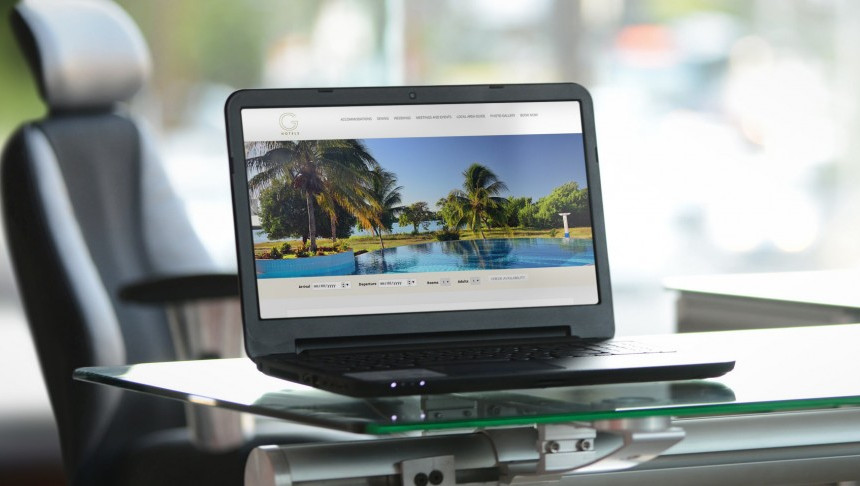
The inaugural WIT Hospitality conference took place in Hong Kong’s state-of-the-art Hotel ICON on March 22, 2016. The day brought forth far more than fresh insight, but it also acted as a platform for key players to fight their corner on key issues that riddle the travel and hospitality industry today.
The one-day event covered topics from how to address evolving customer needs, the love-hate relationship between OTAs and hoteliers, power shifts through consolidation and acquisition, to the rising importance of content marketing.
Drawing on both travel research and views shared by industry panellists ranging from hotel to airlines to start-ups, these nine critical learning points stood out in particular.
1) HOTEL AND DIGITAL PLAYERS MUST FIND A BALANCE IN THEIR CO-DEPENDENT RELATIONSHIP
Hoteliers look at OTAs like the world looks at Donald Trump and Ted Cruz, said Maria Taylor (Regional VP of Southeast Asia, TravelClick) – a mixture of awe, fear and bewilderment – as digital players continue to disrupt hotels’ ability to drive direct bookings.
For example, Colman Ho (VP of Group Marketing, Century City Holdings) argues OTAs’ liberal cancellation policies mean customers often keep shopping for better deals after making a booking, which can create uncertainty for hotel companies. Nevertheless, OTAs and meta-searches are able to unveil new research trends, extend customer reach and ultimately bring in business for hotels.
The conflict lies in the power balance, says Jean-Luc Chretien (Co-CEO of FASTBOOKING), as “hoteliers and OTAs need each other”. Steps can be taken to make the relationship more mutually beneficial, e.g. through sharing of data analytics and insights to drive future strategy. Hoteliers would benefit greatly by integrating digital companies into their own infrastructure, like Accor’s acquisition of FASTBOOKING.
Adam Brownstein, General Manager of BookingSuite, APAC, whose company has signed up 8,000 hotel partners in the region, said, “Our responsibility [in tech] is to show hotels what they can do to embrace the changes… to help [hotels] win in the [digital] marketplace”.
2) HOTELS CANNOT BLAME DIGITAL ENTIRELY FOR LOSS OF CUSTOMER LOYALTY
Oliver Hua, Managing Director, APAC of Booking.com, said that there is less than 2% of repeat bookings on its platform, which raises the question of whether digital companies are weakening customer loyalty.
Colman Ho (Century City Holdings) argued that discount-triggered bookings on platforms like Booking.com and Agoda.com do not equate to customer loyalty but reflect “price-conscious” travel shoppers that specifically seek deals.
“If your brand is strong and your customers are loyal, they will just search for [the hotel] directly. They won’t even step into the meta and OTA sphere”, said Allan Yip (VP Marketing, Distribution & Brands, Artyzen Hospitality Group) which gets 90% of its business online, 50% of that through its direct channel.
Adam Brownstein (Booking Suite) agreed in a separate panel discussion, stating “your brand must exist independently from OTAs… you must build your value proposition and OTAs can help you from there”.
Hoteliers Puneet Mahindroo (Four Seasons) and Carmen Lam (Fairmont) acknowledged that online is where the growth is but it would help if OTAs shared customer data with hoteliers in advance so that hotels could engage with the guests prior to their arrival.
3) CUSTOMER ENGAGEMENT AND EXPERIENCE FOSTER LOYALTY
Strong customer engagement and experience allow guests to engage with particular brands more intimately. Hotel companies can benefit from using customer-created content online (e.g. TripAdvisor reviews) to monitor and acknowledge both positive and negative feedback.
Social media channels can also help build quick relationships with consumers, by engaging through shareable content and direct messaging, says Sally Osborne, the Director of Strategy & Business Development at Hotel ICON, showing that online strategy does not necessarily hinder customercentric approaches.
Aaron Hung (Director of Partnerships, APAC, TripAdvisor) believes directly asking how customers are feeling should not be underestimated. Directly engaging customers and enhancing their experience by mastering ‘micro-moments’ during their stay fosters differentiation, consolidates the hotel’s brand and leaves a more lasting and meaningful impression on guests.
4) ALTERNATIVE ACCOMMODATION IS NOT NECESSARILY A THREAT, BUT GIVES TRAVELLERS MORE OPTIONS
Private accommodation has disrupted the accommodation space as HomeAway and Airbnb provide diverse alternatives to traditional hotels. The appeal of private accommodation rests in its value for money, ability to provide one-of-a-kind customer experiences, and the opportunity to ‘live like a local’; with travellers on the discussion panel also expressing they often enjoyed interacting with their hosts.
Read rest of the article at: Web in Travel




